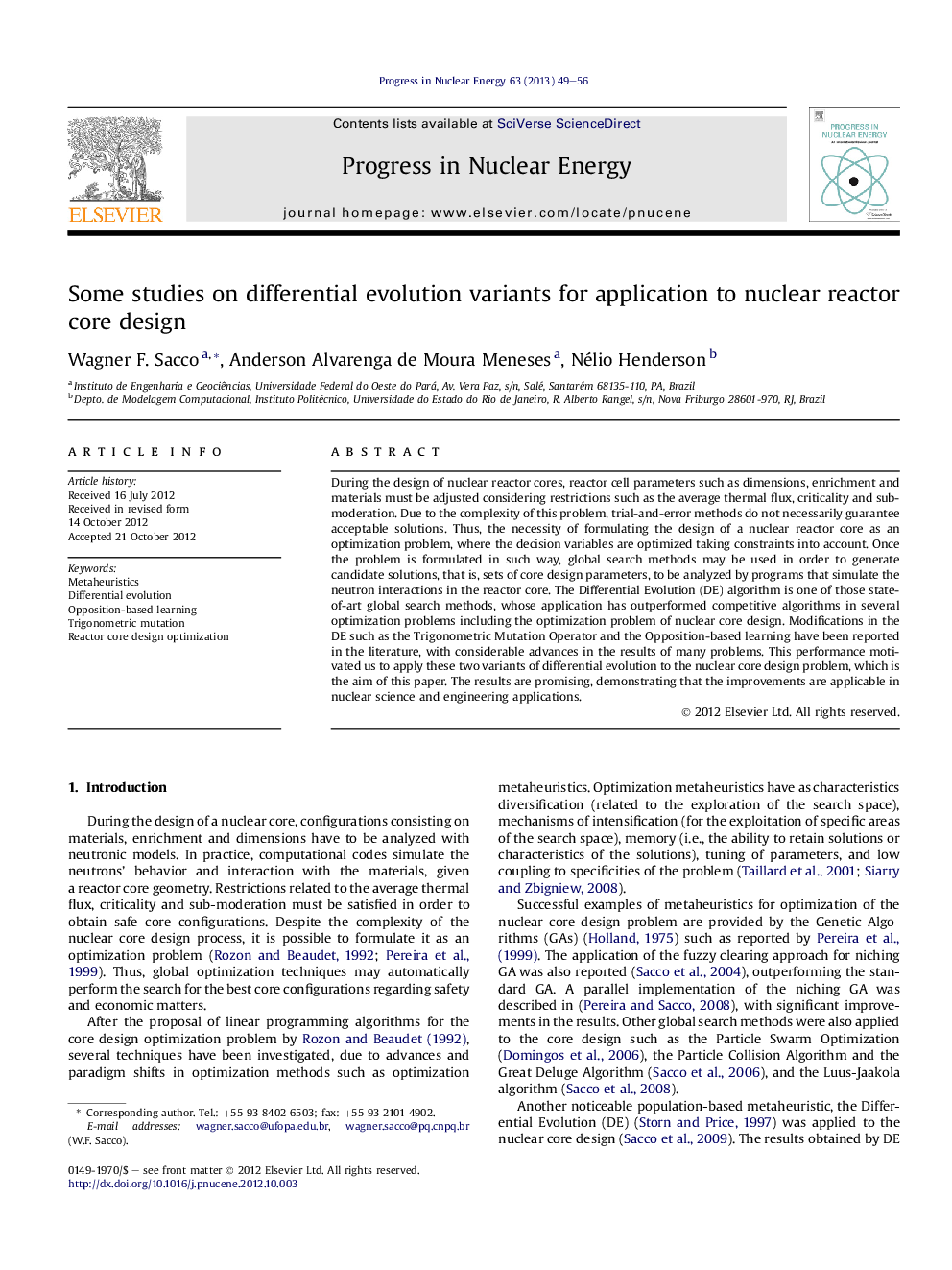| Article ID | Journal | Published Year | Pages | File Type |
|---|---|---|---|---|
| 1741029 | Progress in Nuclear Energy | 2013 | 8 Pages |
During the design of nuclear reactor cores, reactor cell parameters such as dimensions, enrichment and materials must be adjusted considering restrictions such as the average thermal flux, criticality and sub-moderation. Due to the complexity of this problem, trial-and-error methods do not necessarily guarantee acceptable solutions. Thus, the necessity of formulating the design of a nuclear reactor core as an optimization problem, where the decision variables are optimized taking constraints into account. Once the problem is formulated in such way, global search methods may be used in order to generate candidate solutions, that is, sets of core design parameters, to be analyzed by programs that simulate the neutron interactions in the reactor core. The Differential Evolution (DE) algorithm is one of those state-of-art global search methods, whose application has outperformed competitive algorithms in several optimization problems including the optimization problem of nuclear core design. Modifications in the DE such as the Trigonometric Mutation Operator and the Opposition-based learning have been reported in the literature, with considerable advances in the results of many problems. This performance motivated us to apply these two variants of differential evolution to the nuclear core design problem, which is the aim of this paper. The results are promising, demonstrating that the improvements are applicable in nuclear science and engineering applications.
► We apply differential evolution and variants to a challenging optimization problem. ► The variants, Trigonometric Mutation and Opposition-Based, are novel in our field. ► The problem, a nuclear reactor core design optimization, is highly multimodal. ► We give practical directions to those interested in using the algorithms.
